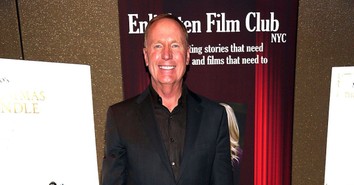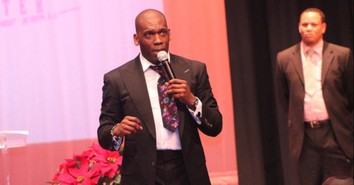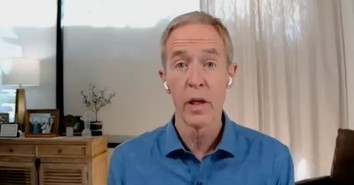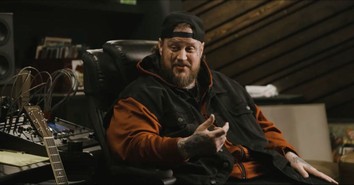Why AI Will Never Preach a Spirit-Filled Sermon

As I was working on my weekly message, I found that something called “Copilot” had been added to Microsoft Word and was now being offered to me as I wrote.
Turns out “Copilot” is an AI program to help me write.
By now, many are familiar with ChatGPT, an artificial intelligence chatbot that was recently released in late 2022. By January 2023, it had become the fastest-growing consumer software application in history. It allows you to have human-like conversations, including assistance with such things as composing emails or essays.
The questions quickly emerged: Could a pastor have it write his or her sermons? Could it be used to compose lyrics to a worship song? Could it be used to craft a discipleship class? The answer to all such questions and more was, “Yes.”
Yet, I will not be using ChatGPT, much less Copilot, to help write my talks, nor any future books.
So why would the person who authored Hybrid Church, no less, draw this line? After all, few have argued more for the appropriate embrace of technology by the Church than I have. But I have also argued that any embrace of technology must always be biblically vetted.
The problem with having Copilot write a sermon is that the Bible clearly teaches that some have been given the spiritual gift, by the Holy Spirit, to do just that—write. It’s what makes a message, by a Spirit-gifted, Spirit-enabled communicator, in the context of the Church, anointed. It’s not just wordsmithing—it’s an activity of the Holy Spirit in the life of the person speaking, and the life of the person receiving the message. An AI-generated talk is not only Spirit-less, but also personality-less.
It reminds me of a scene from the critically acclaimed 2005 film on the life of Johnny Cash, Walk the Line, when Cash – played by Joaquin Phoenix – makes his first audition to the legendary record producer Sam Phillips with a couple of friends by singing a tired old gospel song from his childhood.
They aren’t allowed to finish.
“Hold on. Hold on. I hate to interrupt, but do you guys got something else?”
There’s a long, awkward pause. It’s obvious they don’t.
“I’m sorry. I can’t market gospel no more.”
Johnny then seems to mumble, “That’s what I do.”
“I don’t record material that doesn’t sell, Mr. Cash,” Phillips explains, “and gospel like that doesn’t sell.”
“Was it the gospel or the way I sing it?” asks Cash.
“Both,” Phillips answers.
“Well, what’s wrong with the way I sing it?”
“I don’t believe you,” Phillips replies.
“You saying I don’t believe in God?”
His friends see the confrontation coming and step in to say, “J.R., come on, let’s go.”
Cash won’t leave.
“I want to understand. I mean, we come down here, we play for a minute, and he tells me I don’t believe in God.”
“You know exactly what I’m telling you,” Phillips says. “We’ve already heard that song a hundred times, just like that, just like how you sang it.”
Cash pushes back.
“Well, you didn’t let us bring it home.”
“Bring it… bring it home?” Phillips asks in disdain.
“All right, let’s bring it home.
“If you was hit by a truck and you were lying out in that gutter dying, and you had time to sing one song, one song people would remember before you’re dirt, one song that would let God know what you felt about your time here on Earth, one song that would sum you up, you telling me that’s the song you’d sing? That same Jimmie Davis tune we hear on the radio all day? About your peace within and how it’s real and how you’re gonna shout it?
“Or would you sing something different? Something real, something you felt? Because I’m telling you right now, that’s the kind of song people want to hear.
“That’s the kind of song that truly saves people.”
And then Cash says he did have a couple of other songs, ones he obviously never considered sharing. But somehow the words of Sam Phillips tell him they are the ones he should have sung.
Then he rips into the now legendary “Folsom Prison Blues.”
We all have a song to sing that is ours alone. The key is to do it through who, and how, God made us. Phillips Brooks once famously defined the best of preaching as “communicating truth through personality.” I believe he was right. However, this goes far beyond preaching. It’s more about our sense of calling or vocation as a whole, which Frederick Buechner once defined as “the place where your deep gladness and the world’s deep hunger meet.”
In other words, the song you would sing if it was your one and only song to offer the world.
And yes, that’s the kind of song that saves people.
And it’s one no artificial intelligence can write—at least, write for you. So, while ChatGPT and Copilot may be able to do many things to serve the Church, we must remember that there is one thing it will never be able to do: Be filled with the Holy Spirit.
You make your own choice, but my advice would be this: Open Word, click “File,” then “Options,” then “General,” then “Copilot,” and then unclick the “enable” box.
And then begin writing.
James Emery White
Sources
Walk the Line, DVD scene 8; 23:50 – 26:05.
Phillips Brooks, Lyman Beecher Lectures in Preaching, Yale University.
Frederick Buechner, Wishful Thinking: A Theological ABC.
Photo Courtesy: ©Getty Images/Yuichiro Chino
Published Date: February 20, 2025
James Emery White is the founding and senior pastor of Mecklenburg Community Church in Charlotte, NC, and a former professor of theology and culture at Gordon-Conwell Theological Seminary, where he also served as their fourth president. His latest book, Hybrid Church: Rethinking the Church for a Post-Christian Digital Age, is now available on Amazon or from your favorite bookseller. To enjoy a free subscription to the Church & Culture blog, visit churchandculture.org where you can view past blogs in our archive, read the latest church and culture news from around the world, and listen to the Church & Culture Podcast. Follow Dr. White on X, Facebook, and Instagram at @JamesEmeryWhite.
Originally published February 20, 2025.





